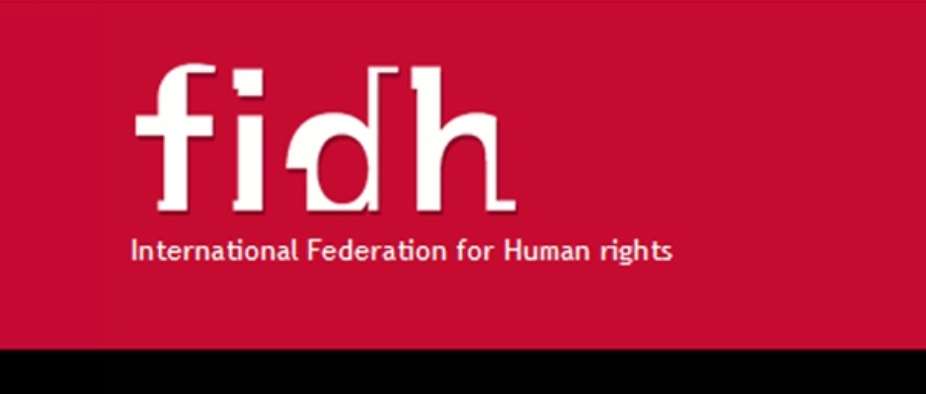PARIS, France, September 5, 2012/African Press Organization (APO)/ -- As the African Court on Human and Peoples' Rights today begins a sensitization mission in Senegal, FIDH and its member and partner organisations, RADDHO, ONDH and LSDH, call on the Senegalese national authorities to seize this opportunity to make firm commitments in favour of access to justice for victims of human rights violations.
In particular, our organisations call on Senegal to make a declaration under Article 34.6 of the Protocol establishing the African Court, thus enabling individuals and NGOs in Senegal to have direct access to the Court where domestic remedies have been exhausted in respect of State responsibility for human rights violations. In the absence of such a declaration, only the African Commission on Human and Peoples' Rights (ACHPR), other States Parties to the Protocol and African intergovernmental organisations may, under specific conditions, seize the Court regarding human rights violations perpetrated in Senegal. “It is important to recall that Senegal was the first African country to ratify the Protocol establishing the Court. Today's visit has considerable symbolic meaning. The authorities must take this visit seriously and seize this opportunity to make a declaration under Article 34.6”, declared Alioune Tine, President of the RADDHO an organisation vice-chairing the Coalition for the African Court.
The adoption, in 1998, of the Protocol establishing the African Court on Human and Peoples' Rights was a major step forward for the protection of fundamental rights in Africa. Operational since early 2009, the Court is mandated to monitor the compliance of States Parties with the provisions of African and international human rights instruments. This jurisdictional body, whose decisions are binding, is in this sense complementary to the ACHPR whose protection mandate it reinforces.
However, over 10 years after the adoption of the Court's founding Protocol, only half of African states have ratified it, and only five of these have made an Article 34.6 declaration to date (Burkina Faso, Ghana, Malawi, Mali, Tanzania). The small proportion of states allowing NGOs and individuals to bring their cases directly before the Court seriously undermines the effectiveness of this body despite a clear appetite for its establishment. “Senegal has a key role to play in strengthening the African Court. The country cannot miss this opportunity to conform with its commitments” declared Assane Dioma Ndiaye, LSDH President.
FIDH Representative to the African Union, Mabassa Fall, declared: "The optimism about having an African mechanism mandated to provide justice to victims of human rights violations has unfortunately been replaced by disappointment generated by the lack of real commitment of African states towards a Court that is truly protective. In this regard, a declaration under Article 34.6 by a State such as Senegal, which, in the Hissene Habre case, has just taken strong acts to fight impunity, seems to be essential to the political coherence of this country".





 Meta releases new version of conversational AI across its platforms
Meta releases new version of conversational AI across its platforms
 Cape Town named Africa’s Best Airport 2024 by Skytrax
Cape Town named Africa’s Best Airport 2024 by Skytrax
 Bono East: Four injured after hearse transporting corpse crashes into a truck
Bono East: Four injured after hearse transporting corpse crashes into a truck
 ‘Be courageous, find your voice to defend our democracy’ — Sam Jonah urges journ...
‘Be courageous, find your voice to defend our democracy’ — Sam Jonah urges journ...
 Exodus of doctors, nurses and teachers have worsened because of unserious Akufo-...
Exodus of doctors, nurses and teachers have worsened because of unserious Akufo-...
 2024 election: Avoid insults, cutting down people in search of power – National ...
2024 election: Avoid insults, cutting down people in search of power – National ...
 ‘You passed through the back door but congratulations’ — Atubiga on Prof Jane Na...
‘You passed through the back door but congratulations’ — Atubiga on Prof Jane Na...
 Government’s $21.1 billion added to the stock of public debt has been spent judi...
Government’s $21.1 billion added to the stock of public debt has been spent judi...
 Akufo-Addo will soon relocate Mahama’s Ridge Hospital to Kumasi for recommission...
Akufo-Addo will soon relocate Mahama’s Ridge Hospital to Kumasi for recommission...
 We must not compromise on our defence of national interest; this is the time to ...
We must not compromise on our defence of national interest; this is the time to ...
